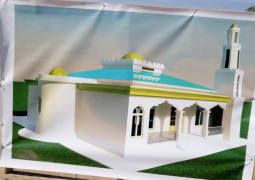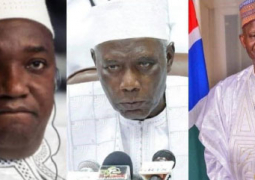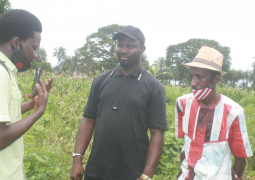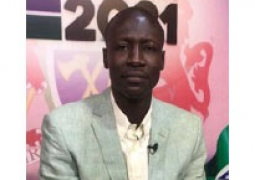
The statement was delivered on Thursday, September 18, by Lamin Dibba of the Center for Budget and Micro-Economic Transparency, speaking on behalf of more than a dozen organisations including Activista, the Gambia National Youth Parliament, Team Gom Sa Bopa, the Edward Francis Small Centre for Rights and Justice, the Solo Sandeng Foundation, Think Young Women, Fantanka and Music for Change.
Dibba said the President’s action was particularly disturbing because it occurred on September 15, the very day the world marked the International Day of Democracy. “On a day meant to honour freedom, justice and dignity, the Government instead chose to undermine constitutionalism and attack the foundations of democracy in The Gambia,” he declared.
Civil society leaders stressed that The Gambia’s democracy is still fragile, less than a decade after the fall of Yahya Jammeh’s two-decade dictatorship. They reminded citizens that the change of 2016 was brought about by the courage of ordinary Gambians who stood up to tyranny, many of whom paid the ultimate price for freedom.
“The bitter irony,” Dibba said, “is that the very individual who benefited most from the people’s rejection of dictatorship, President Adama Barrow, is now dismantling the same democratic order that brought him to power.”
The organizations argued that the dismissal of the Auditor General was carried out in clear violation of both the 1997 Constitution and the National Audit Office Act of 2015. They noted that the law provides only four legal conditions for removal: completion of a nine-year tenure, voluntary resignation, attainment of retirement age, or proven incapacity or misconduct determined by a tribunal or medical board. None of these conditions, they insisted, have been met.
“This is not a mistake or a misunderstanding,” Dibba said. “It is a deliberate and calculated assault on accountability, transparency and democratic governance.”
The coalition further warned that the consequences of this action extend far beyond the Auditor General’s office. If such unlawful interference is allowed to stand, they cautioned, it could endanger other critical institutions, including the Independent Electoral Commission, the National Human Rights Commission, the Ombudsman, the judiciary and even the Speaker of the National Assembly.
According to the groups, undermining oversight bodies not only weakens the fight against corruption but also erodes human rights protections and risks dragging the country back into autocracy.
They called for the immediate reinstatement of the Auditor General to allow him to complete his lawful nine-year tenure. They further demanded that any removal process must be done strictly in line with the Constitution and the NAO Act through the establishment of a tribunal or medical board. Dibba also insisted that the Gambia Police Force must end what he described as intimidation and harassment of the Auditor General and other citizens exercising their rights, stressing that the police must protect the Republic rather than serve as enforcers of illegal executive orders.
The civil society coalition vowed to continue resisting what they termed creeping authoritarianism through lawful and peaceful means. Dibba invoked the memory of fallen heroes such as the April 10 and 11 student protesters, veteran journalist Deyda Hydara and political activist Solo Sandeng, saying their sacrifices would not be allowed to go in vain.
“We will not surrender our hard-won freedoms,” he said. “We will resist until the Auditor General is reinstated, due process is respected and the laws of The Gambia prevail over the whims of individuals.”
Dibba concluded by declaring that democracy belongs to the Gambian people, not to any leader. “Democracy is not a gift from leaders to the people. It is the birth right of the people, defended by their courage and secured by their laws. The Gambian people will defend their democracy,” he affirmed.





